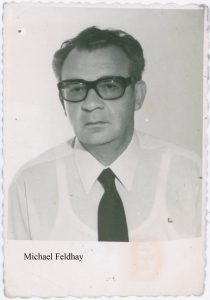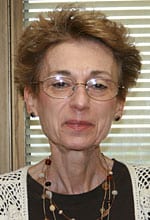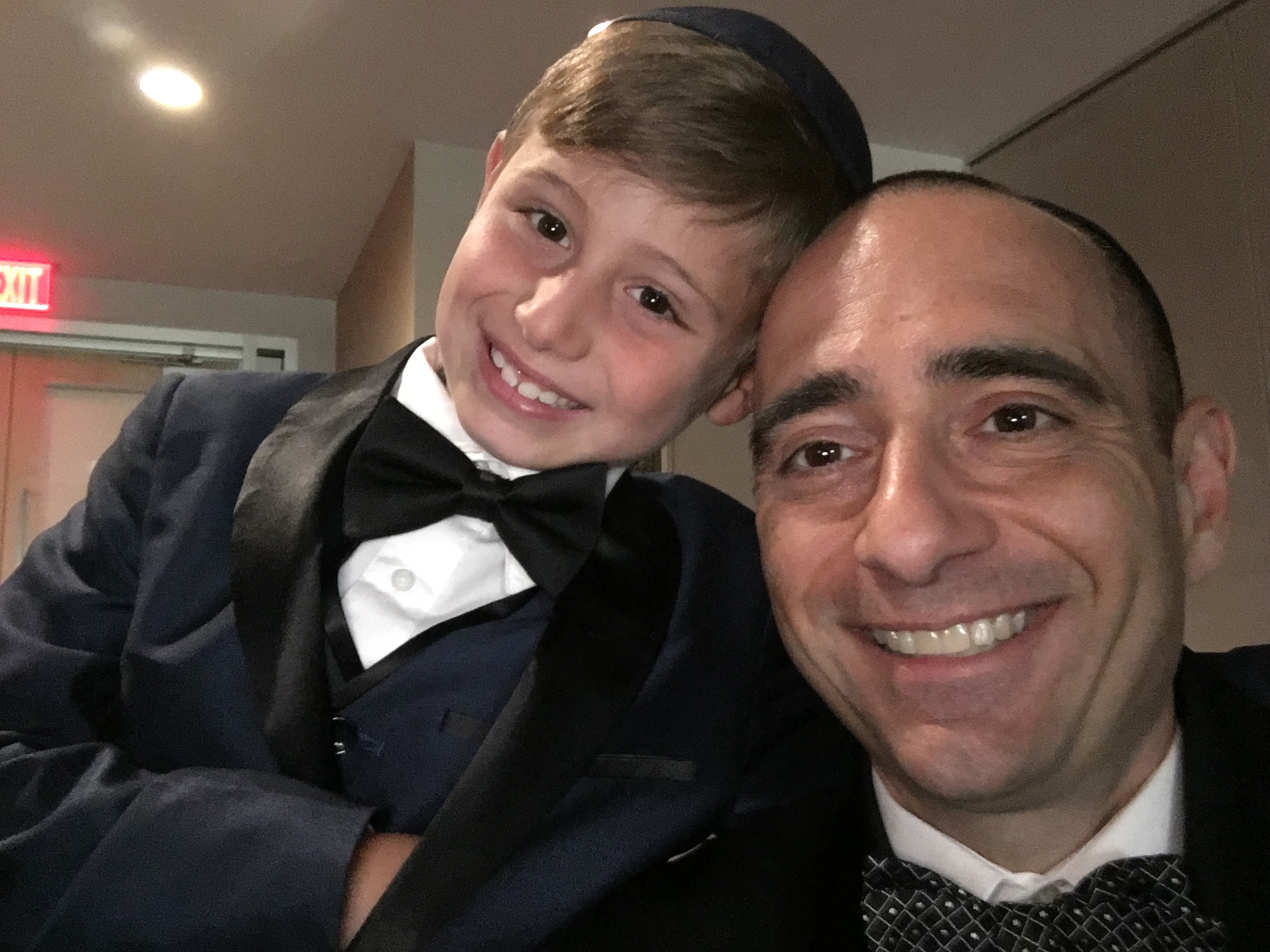- Local Survivor registry
- MICHAL FELDHAY
- Local Survivor registry
- MICHAL FELDHAY
Survivor Profile

MICHAL
FELDHAY
(1911 - 1992)
PRE-WAR NAME:
MICHAL FELDHAY
MICHAL FELDHAY
PLACE OF BIRTH:
WARSAW, POLAND
WARSAW, POLAND
DATE OF BIRTH:
SEPTEMBER 11, 1911
SEPTEMBER 11, 1911
LOCATION(s) BEFORE THE WAR:
WARSAW, POLAND
WARSAW, POLAND
LOCATION(s) DURING THE WAR:
ROWNO, POLAND; SIBERIA, WORK CAMPS; UZBEKISTAN
ROWNO, POLAND; SIBERIA, WORK CAMPS; UZBEKISTAN
STATUS:
SURVIVOR, REFUGEE
SURVIVOR, REFUGEE
RELATED PERSON(S):
HELENA HELD FELDHAY - Spouse (Deceased),
JOEL FELDHAY, Brother (Deceased),
RACHEL FELDHAY BRENNER - Daughter (Deceased),
YORAM FELDHAY - Son,
GUY BRENNER - Grandson,
SHELLY BRENNER - Granddaughter,
SARA GORRELL BRENNER - Daughter-in-law,
NANCY AND JOSEPH GORRELL, In-Laws ,
ELI BRENNER - Great - Grandson,
LEVI BRENNER - Great - Grandson,
ARI BRENNER - Great - Grandson,
JACOB ASOULIN -Great - Grandson
-
BIOGRAPHY BY rachel feldhay brenner, daughter
My father was born in Warsaw, Poland. He graduated from the prestigious Polytechnic School of Warsaw with a degree of Civil engineer. He married my mother in 1939 and they spent the war years in the Soviet Union, Siberia and Uzbekistan where he suffered starvation and typhoid fever. Early in 1946, he returned to Warsaw to find his family, and later to Silesia where I was born on July 2nd. In the post war years, he worked as an engineer rebuilding the totally destroyed city of Warsaw. In 1957 my father emigrated to to Israel, and he and my mother settled in Ramat Aviv. In Israel he worked for the Ministry of Housing. My parents lived their remaining years in Ramat Aviv and came to know their grandchildren, Guy and Shelly Brenner, my children, who were born in Israel and Canada respectively. My father was a loving father and husband, totally dedicated to his family. His love will remain with me forever.
Editor’s Note:
Refer to Historical Notes Below for Bug River
-
SURVIVOR INTERVIEW:
MICHAL AND HELENA FELDHAY INTERVIEW WITH RACHEL BRENNER, DAUGHTER
Date: May 19, 2017
Location: University of Wisconsin, Madison (Phone Conference)
Interviewer: Nancy Gorrell
Q: Describe your parent’s family background.
My father, Michal Feldhay was the youngest of four children growing up in Warsaw, Poland. He was born September 11, 1911. His father was tailor. They were orthodox Jews but not ultra religious. His father was keeping the mitzvahs, but he had to go to work on Saturdays. My mother came from an observant family. My grandmother knew Polish, and she educated herself on Polish literature. She was married before to a rabbi’s son, and she divorced him and came to Warsaw and met my grandfather. This is what my mother told me, but they never talked about it. My grandfather was her second husband. My mother was very admiring of her grandmother’s independence.Q: What was your grandmother’s name?
Rachel. I was named after her. I don’t know what town my grandmother came from, but it was a small town.Q: What was your parent’s religious background?
My parents were extremely Polish culturally, and they were atheists. They didn’t go to a synagogue, but my great grandfather was a Hasid. My mother said he never ate or drank in their home because it was not kosher for him. My parents never went to synagogue. My grandparents, yes. My parents were very strongly rationalists.Q: Were your parents educated?
Oh yes. Both my parents met at the Poly-Technical School of Warsaw, one of the best schools in Europe. They were both studying engineering. My mother was studying chemical engineering, and my father was studying civil engineering at the time. They graduated in 1936. It was amazing for my mother to get a degree. Amazing they got degrees as Jews, and for her, as a woman as well. There were women educated at that time in Europe, but there were numerous restrictions on Jews. There were ghetto benches in lectures halls for Jews, and there were also extreme persecution of Jewish students. In the late 1930s especially, there were violent attacks on Jewish students.Q: Did your parents experience the Warsaw ghetto?
There was no real ghetto in Warsaw before the war. There were areas where Jews lived in Warsaw. The Jews were one third of the population of Warsaw at the time. Anti- Semitism—violent anti-Semitism—existed throughout the 1920s and especially the 1930s. Jews couldn’t get jobs; they couldn’t get to use the libraries. And remember, it was also the Depression, which was extremely difficult for everyone, but especially for the Jews. Poverty was everywhere.Q: When did your parents get married?
They got married on May 20th in 1939. They waited so long because they couldn’t get jobs. My father didn’t want to get married until he could get one. They both got jobs in Jewish engineering firms by May 1939. Then they could get married.Q: What happened to them when Hitler invaded Poland? Warsaw fought back but the Germans decimated the Polish army. There was a call for all able-bodied men to go east because the army was mobilizing there (it was a bogus call on the radio). My father with my two uncles, his brother, and my mother’s brother, left Warsaw on September 3rd before the Germans got to Warsaw. They didn’t meet any army of course. By that time, the Russians were coming from the east to the west to divide Poland. My father and my two uncles came to the border—the Bug River. They crossed to the other side before the Germans got to them and they fled to the town of Rowno.
Q: What happened to your mother?
My mother stayed with my grandparents in Warsaw until October 1939. Warsaw fell in late September. In October, for the Jewish holidays, the Germans bombed the Jewish districts. And my grandmother said to my mother, “You have to go to join your husband.” My mother didn’t want to leave her parents. But my grandmother insisted. My mother left to find her husband. When she came to the Bug River, there were Germans there, but they let her pass. That was a miracle. And then she somehow found her way to her husband and joined him in Rowno where he was with other Polish refugees.Q: What did your parents do in Rowno?
They wanted to go back to their parents in Warsaw. They had to be smuggled across the Bug River. My mother told me they were all packed and ready to go when the smuggler was caught. That is why they couldn’t go back. And that’s why I’m here today. The people that went back ended up in Auschwitz and Treblinka. By 1940, the Warsaw Ghetto was closed off.Q: What happened to your parents in Soviet Russia?
Stalin rounded up all the Polish Jewish refugees and sent them north to the camps in Siberia. Up in Siberia, until Hitler attacked the Soviet Union in 1941, my grandmother was able to write letters to my parents. I still have those letters. My grandmother was so worried about them. They were wonderful letters—in beautiful Polish. The letters are still legible today.Q: What did your parents do in the camps in Siberia?
They worked chopping wood. I think they were also in some kind of factory producing vodka from potatoes since they were engineers. In 1943, during the siege of Stalingrad, the Russians moved all the refugees to the southern republics. My mother said it was a miracle that they stayed together; so many people were separated on so many randomly moving trains. There were millions of people were on the move. When they got to Uzbekistan, there was tremendous starvation from the war. There was such sickness. My parents got sick with typhoid fever and malaria.What happened to your grandmother and the remaining family?
I think it was the 1942 deportation to Treblinka. I think my grandparents on my father’s side died of typhoid fever in Warsaw. But the rest of the family went to Treblinka. That is what my uncle found out later.Who survived in the family?
My two uncles survived in the camps in Siberia; everybody else who was in Warsaw perished except those who could hide. In 1943 after the uprising, a few fighters escaped through the sewers. Basically, everyone in the ghetto perished. Who could find a way? It was a very difficult story.Q: How did your parents survive in Uzbekistan?
Stalin let all the Polish refugees from Siberia “free.” I don’t know what they were doing. They were starving. They were taken for the northern camps to the southern Republics.Q: Where did your parents go next?
They stayed in Uzbekistan until 1945; all the refugees were there. In the meantime Stalin allowed the Poles to organize a Polish army under General Anders. He was organizing fighters to go and fight with the Soviets. My uncle was an officer in the Polish army, so he joined the Anders army and they went and fought in Italy, the Middle East and through Palestine. There, many Jews deserted and stayed in Palestine. There was tremendous anti-Semitism in that army. My uncle left his wife and baby in Warsaw who perished. He deserted the Anders army and stayed in Palestine and married my aunt. My uncle, Jan Feldhay (Yoel Rainer in Israel) settled in there in 1944.Q: What happened to your parents after the war?
In early 1946, they went back to Warsaw. My mother was pregnant with me and my twin brother. She knew she was having twins because she saw a doctor in Uzbekistan. When my parents went back to Warsaw, my mother was in her ninth month.Q: Why did they go back to Warsaw?
They were afraid that Stalin would close the borders, which he did and they would not be able to leave. So at the last the minute, they went back to Poland. They had no other place to go. My mother had a premonition. She always told me she knew nobody survived. My parents went back to Warsaw, but they couldn’t stay there because it was completely burned.Q: Describe the state of post-war Warsaw.
In August 1944, there was the Polish uprising. The uprising failed; the Germans burned the rest of the city (they already had burned the ghetto). So the entire city of Warsaw looked like it had been destroyed by an atomic bomb. It was completely flattened. My parents couldn’t stay there. It is difficult to understand how one comes back to one’s native city which is completely destroyed.Q: Where did your parents go when they left Warsaw?
They went to Silesia. They stayed there with friends that they made in Uzbekistan. They lived there for two years and then they went back to Warsaw.Q: Where and when were you born?
I was born in Silesia on July 2nd 1946. By the time she got there, she needed a caesarian birth. She was suffering from hunger and starvation and her malaria came back too. There was no medication. She had a breakdown. My uncle sat with her for a month. But she got out of it. She had two kids. There was so much starvation in Silesia too. HIAS was helping Jewish refugees. Because my parents had two Jewish children, they were helping by giving my parents food, especially meat. For this meat, my parents hired two nannies to take care of the infants because my mother was so sick. The nannies came for the meat; two terrific sisters. Can you imagine the starvation? But they went through it. I don’t know how the people found the stamina to rebuild their lives.Q: Why did your parents leave Silesia?
The new government in Warsaw asked my father to come back because he was a civil engineer. The government began rebuilding the city and they needed help. There were no people there. Three million Jews and three million Poles were killed and there was no intelligentsia left.Q: How long did it take your parents to fully recover?
My parents were always sick. But they somehow recovered. They both worked; she in a brewery. In 1957, they had to leave Poland. Anti-Semitism was on the rise. The Polish government wanted the Jews to leave. When Stalin’s relationship with Israel broke, Jews were accused of being Zionists and asked to leave.Q: Where did your parents finally settle?
Israel. They settled in Ramat Aviv where the University is today, but at the time it was just sand—one street, an elementary school and a grocery store. I was 11 years old. It was very difficult. My parents had to leave to go to another country where they didn’t know one word of Hebrew. The climate was so different. But they made it. They worked in their professions. We lived very modestly. At the time, most of the people were in the same circumstances. It was a different Israel than today. My brother, Yoram Feldhay still lives in Israel. He has two children and many grandchildren. He lives in Jerusalem and part time in Tel Aviv. My parents lived their remaining years in Ramat Aviv and came to know their grandchildren, Guy and Shelly Brenner, my children, were born in Israel and Canada respectively. -
HISTORICAL NOTES:
Bug River: Bug is a name of two rivers in Eastern Europe on opposite sides of the European watershed. The (western) Bug flows through western Ukraine, South-western Belarus and Poland. It is 772 km long and empties into the Vistula. The basin of Bug is about 30,420 km2 large. The Western Bug is the boundary between Poland and Ukraine. It ends in the Narew River near Serock and it is 772 km (480 mi) long, making it the fourth longest river in Poland.
-
Sources and Credits:
Credits:
SSBJCC Survivor Registry Interview with Rachel Feldhay Brenner, May 19, 2017, Interviewer: Nancy Gorrell; Biography by Rachel Brenner. Digital historic and family photographs donated by Rachel Brenner and Nancy Gorrell
The SSBJCC Holocaust Memorial and Education Center gratefully acknowledge Holocaust education assistance given to the Center by Rachel Feldhay Brenner, Professor of Judaic Studies, University of Wisconsin, Madison.





